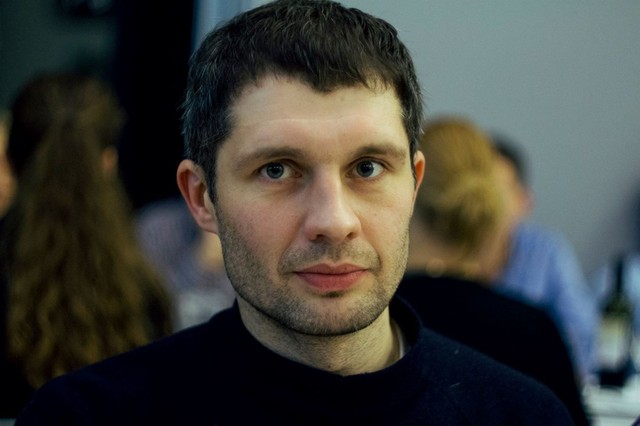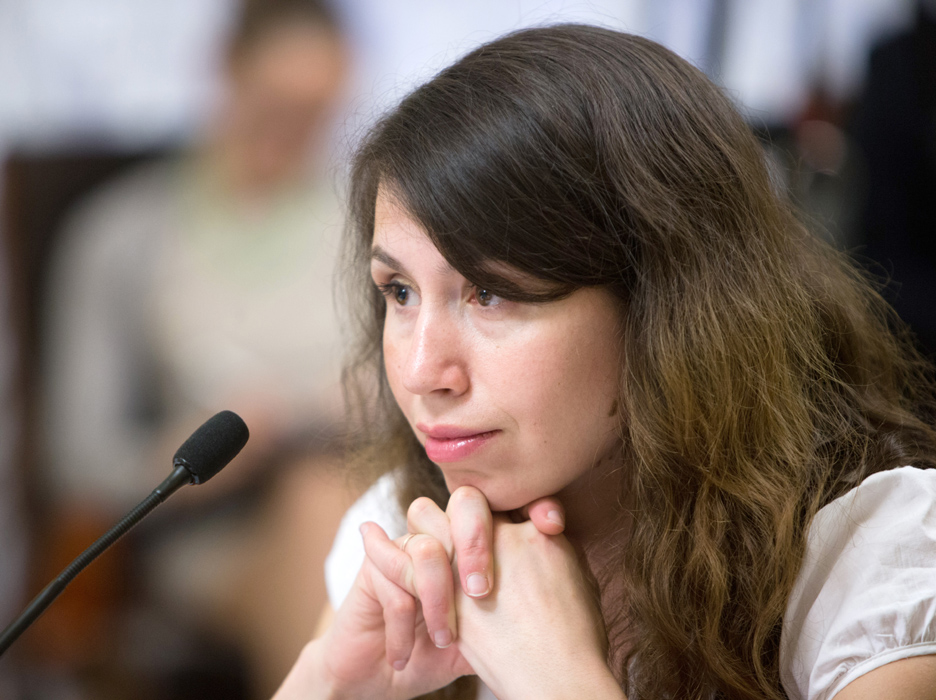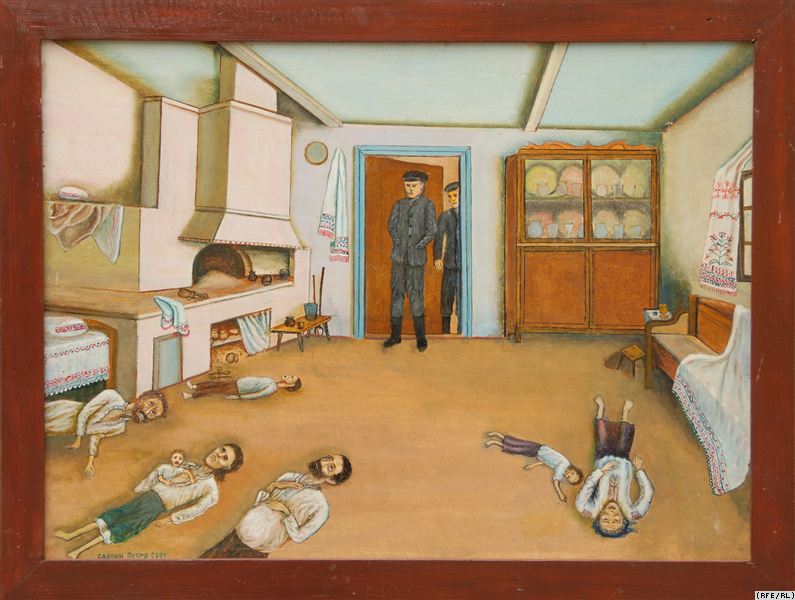Before becoming a community activist, I worked for 8 years as an assistant in the Department of Pediatrics. Since this is a clinical department where they teach students how to treat patients, the department employees must be clinicians themselves, therefore practicing doctors. With a clinical background, I was especially lucky since I ended up in the Western Ukrainian Specialized Children's Medical Center. For a Ukrainian pediatrician, this is the same as getting into the NBA for a basketball player.
This hospital is unique in many ways. For example, the hiring of doctors is handled not by the chief doctor, but by a secret ballot of the entire medical staff. That way, for two decades the best of the best in their fields have been assembled in this hospital. The patients come here to be treated from all parts of Ukraine, even from abroad, mostly the East.
So, I found myself in a progressive hospital that has to function under the current regressive conditions that prevail in Ukraine. The conditions are as follows.
According to the Constitution, "in state and communal health care institutions, medical care is free of charge…" Therefore, the Ukrainian state, having inherited the slogans of the Soviet Union, is committed to providing all necessary medical care for the citizen -- starting from treating a cold in a clinic and ending with heart transplants in the Amos Institute -- all free of charge.
No country can afford such luxury.
And if you consider that out of the budget collected from my taxes and yours, the state allocates barely $50 dollars per Ukrainian citizen, then these promises are nothing other than populism that is legalized by the Constitution.
But the law is the law. And payment for medical care in state and communal health care institutions is a violation of the constitutional rights of a citizen. The responsibility for this violations lies with the doctors with miserable salaries.
At the university they tell us -- the future doctors -- that we are choosing the profession of doctor to "burn ourselves while illuminating the path for others with our fire." It is a fairly romantic image that you really want to believe: that you are the savior of a person's body and soul! But there is an element of disinterestedness inextricably intermixed with this idea: "the patient's money for the doctor is dirtier than peritonitis."
And this collective image is called the Hippocratic oath.
After graduation the young doctor-intern with the prospect of earning $80 a month enters a medical community where people drive foreign cars and who obviously are not beggars. Therefore, they are earning money somehow and earning it well.
As the intern studies the medical work, he also observes the "urgent" issues. After a while he concludes that he has only two choices as a doctor:
- either treat and hope for the "thanks" of the patients ( beggar style);
- or state the price and then treat (gangster style)
The option "don't take money at all" is possible, but in that case it is "idiot style."
Because no one except you will appreciate it. And the patients will think that they have not offered you enough and that you were offended and refused to accept such a pittance.
This is exactly what happened with my first patients. When they first tried to shove the "thanks" into the pocket of my starched coat, I grimaced either in surprise or dismay and demonstratively left the ward. That was the last time I saw these patients (mother and child). They never again turned to me for help.
Senior colleagues advised me not to "play the idiot" and not to offend people who want to "thank" me for their cured child.
I received the first honestly beggared 5 dollars several days after this incident as I was discharging a mother and infant from the hospital. The young father awkwardly shoved some money into the pocket of my coat.
Little by little I began to accept this type of "gratitude" as a sort of bonus for good work (work that I actually performed well) and slowly I began to acquire patient-clients.
With time, in addition to hospital patients, I also acquired outpatients -- the ones who only needed consultation and received treatment at home. It turned out that it was possible to receive thanks from the outpatients as well by spending a week or two with a child, by analyzing a bunch of examinations, by changing the dynamics of the treatment, and writing a bunch of necessary and not so necessary paperwork.
These same patients turned to me repeatedly at the first signs of illness. The parents with the child went to recover at home and I received my "gratitude." Moreover, this "gratitude" did not differ very much from the one I received after hospital treatments.
I realized that parents "thanked me" not for the amount of work but for the fact that it was done, regardless of the time and effort required.
The other aspect of this case also made an impression: patients called for the slightest need, therefore they rarely required hospitalization. There were no issues with vaccination, since confidence in an independently chosen doctor goes up a few notches.
The results suited everybody: patients had "their own" doctor, there was early diagnosis and prevention, and, as a result, treatment in the early stages, usually at home. For me, the result was an uncomplicated patient and "gratitude." Often I also treated the parents (for a pediatrician it is quite easy to treat adults).
With time these "thanks" begin to be perceived as something inherent, no longer a bonus for work well done but a fair payment for services. And when a patient simply says "thanks for now" you begin to have the uncomfortable feeling that you've been had, that you did the work, but where is the reward?
Of course, if your patients are from a distant village and do not even have money for medicines, you do not expect "gratitude." Money for the medicines can be requested from the medical fund (fortunately the fund is not stingy with such requests). But if your patients are brought in by a father in a new Audi and at the end of the visit you only receive a verbal "Thanks, doctor," then you do not view it as anything other than cheating.
Later it gets worse: you consciously or unconsciously begin to divide patients into the "acceptable" and "not very acceptable."
Gradually the "very acceptable" ones appear that must be visited even after hours, and here it is not quite the Hippocratic oath that drives you but the natural desire to earn money. When other "not so acceptable" patients call, you deny their request without remorse because they have their district doctor and you think "why should I do his job if he is paid by the state." And the state in this case has said its weighty word: "No payments in Ukrainian medicine."
So, I became an informal family doctor like thousands of my colleagues in the hospitals of the country. The total volume of thanks in monetary equivalents from outpatients became my main honestly beggared earnings.
In fact, patients had simply transferred the function of a family doctor to me, with the only difference that they paid for outpatient care themselves. The money that had been allocated for this aid in the state budget went to some clinic according to (the patient's) place of residence.
This state of affairs suited everybody: patients received services, I received "thanks," and the regional doctor did not worry about this behavior since it in no way affected his salary. There were only two problems: all this was contrary to the Constitution ("in state and communal health care institutions medical care is free") and also common sense (the patient pays me for services for which the state pays someone else).
Is this news for anyone? I don't think so. We all understand it and we all live with it.
This is the way thousands of Ukrainian doctors and millions of Ukrainian patients live. This is the way I lived until I went to Maidan. And then I understood that I do not want to return to this system and to pretend that nothing is happening.
I simply have had enough.
I appeal to you, colleagues in white coats. Haven't you had enough of choosing between the roles of beggar and racketeer, with the additional option of being an idiot?
I appeal to you, patients. Haven't you had enough of viewing the workers of the noblest profession as beggars or racketeers? I won't even ask about the idiot option.
Then, perhaps, we can all finally begin to ask the awkward questions of those who beat their breasts before elections?
I propose we begin with the following:
The first question. When will the state stop transferring responsibility for its own unfulfilled promises to the doctors?
After inserting into the Constitution the right of citizens to free medicine, the state is demanding that doctors with miserable salaries deliver on these promises, without providing the medications or the conditions for implementing this law. By promising everything, the state guarantees nothing.
In my view, there is only one way out: to clearly state what is paid through state funding and what the citizen has to pay himself or, if he is insured, what the insurance pays.
Second question. Why does "the money follow the patient" and the "patient follows the money"?
That is, a doctor is selected for a Ukrainian citizen by the invisible hand of an official, who relies not on the desire of the citizen but acts according to Soviet norms and his own views or interests. A Ukrainian citizen has only one special option left --"money follows the patient." If you want to choose your own doctor, pay out of your own pocket.
Why can't the citizen choose by himself the individual who will help him stay healthy thereby creating competition in medicine?
Perhaps we can allow doctors and patients to draw up agreements according to which the state would pay expenses for some patients and others would not die 11 years earlier than Europeans.
By the way, we do not need to travel to Europe for examples. Experience with similar contracts already exists in the Ukrainian city of Voznesensk (Mykolaiv Oblast). Here the emphasis was placed on prevention and early diagnosis of diseases and the relationship between doctor and patient was strengthened through written agreements. The management and financing of healthcare was transferred to an electronic format and produced excellent results. Moreover, not a single extra penny was paid out of the state budget.
Third question. Why a quarter of a century after the collapse of the Soviet Union does Ukrainian medicine remain stuck in a dense soviet world with the slogan "Everything free for the people!"?
And if reality does not match the slogans, the "enemies" are guilty. In our case, the doctors.
A parliamentary coalition "For European Ukraine" should have changed this constitutional absurdity. However, I have the impression that the only thing that the coalition parliamentarians have engaged in was to first seek the enemies of reform and then those responsible for the lack of reform.
We must unite our efforts in order to pose these and other inconvenient questions to the politicians.
I propose that we do it here: Health Care Reform Group, Reanimation Package of Reforms.
By Oleksandr Yabchanka, manager of the Health Care Reform Group with the Reanimation Package of Reforms NGO. Especially for Ukrainska Pravda
*****
Oleksandr Yabchanka is a prominent activist for health care reform in Ukraine. Born in Lviv, he completed his medical studies at the Danylo Halytskyi Lviv National Medical University. He then worked as a pediatrician in western Ukraine for eight years before joining the Maidan uprising in Kyiv in 2014 as a medical volunteer. After witnessing the death of many of his friends and fellow activists during the repressions against Maidan, he was determined to bring about necessary changes in the country through civic activism. He joined the Reanimation Packet of Reforms civic sector initiative, where he heads up the Health Sector Reform Group that lobbies for health sector modernization.





